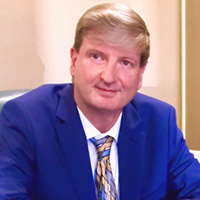New Lisbon White Collar Crime Lawyer, Wisconsin
Sponsored Law Firm
-
 x
x

Click For More Info:
-
The Law Offices of Richard L. Cooper, P.A.
848 Brickell Avenue Suite 800 Miami, FL 33131» view mapDWI/DUI, Drug Trafficking, Felony Nationally Ranked Top 40 Under 40
With Richard L. Cooper you can expect a trusted confidant who will work diligently to fully understand your case and determine a road map to help you regain control of your life.
800-756-2781
Not enough matches for New Lisbon White Collar Crime lawyer.
Below are all New Lisbon Criminal lawyers.
Peter C. Lloyd
✓ VERIFIEDDivorce & Family Law, Criminal, Traffic, Child Custody, Child Support
Attorney Peter Lloyd is an experienced lawyer practicing law in the Central Wisconsin area. He limits his practice to specific areas (family, criminal... (more)
Jonathan D. Sherman
Criminal, Personal Injury, Divorce & Family Law, DUI-DWI
Status: In Good Standing
FREE CONSULTATION
CONTACTFREE CONSULTATION
CONTACTTyler J. Tripp
Divorce & Family Law, Criminal, Bankruptcy, Bankruptcy & Debt
Status: In Good Standing Licensed: 21 Years
Gregory J. Jerabek
Child Support, Divorce & Family Law, Criminal, Bankruptcy & Debt
Status: In Good Standing
Julie A. Dadoun
Federal, Estate, Divorce & Family Law, Criminal
Status: In Good Standing Licensed: 7 Years
Daniel M. Berkos
Traffic, Child Custody, DUI-DWI, Criminal
Status: In Good Standing Licensed: 45 Years

 Richard L. Cooper Miami, FL
Richard L. Cooper Miami, FL AboutMiami Attorney at Law
AboutMiami Attorney at Law ServicesCriminal Defense
ServicesCriminal Defense

